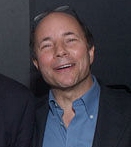A Quote by Kate Williams
Analysis of soil, grave goods and skeletons has been key to our understanding of archaeology and the migration of peoples, as well as their daily lives. But in mainstream history, we tend to stick to documents.
Related Quotes
People of the Philippines: I have returned. By the grace of Almighty God our forces stand again on Philippine soil—soil consecrated in the blood of our two peoples. We have come dedicated and committed to the task of destroying every vestige of enemy control over your daily lives, and of restoring upon a foundation of indestructible strength, the liberties of your people.
Artists tend to be people of strong character and opinion. Often they are dismissed in our culture if they don't fit a certain mainstream media mold. It's a reason why filmmakers are now releasing films online. Art, in any form can invoke various emotions and actions. I think some can be frightened of the power that a simple image can invoke and that's why they tend to shy away from it. But art documents moments in our history and that image is often what many people remember of a certain time.
Archaeology in general is the recovery and study of the material culture of past civilizations. Biblical archaeology is as an application of the science of archaeology to the field of biblical studies. Through the comparison and integration of Scripture with the evidence of history and culture derived from archaeology, new insights into the biblical context of people and events, and sometimes the interpretation of the text itself, are possible. In this way archaeology serves as a necessary tool for biblical exegesis and for apologetic concerns.
The issue of migration has played a key role in all of our member states, wherever we are. Only we, as a European Union, can convince our citizens that we do have an answer to this - not deny migration, not pretend you can solve it by building fences and walls, not pretending we can solve it by letting everybody in.








































